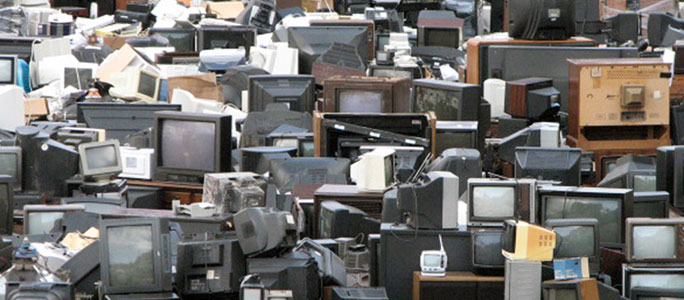Recently we wrote a blog post all about how it’s important to recycle electrical equipment. We talked all about different methods for recycling electrical items in the home, but now, thanks to a new law, retailers in the EU are also legally required to take back electrical equipment as well.
The new rulings are set to change the Waste Electrical and Electronic Equipment Directive (also commonly known as WEEE – stop sniggering back there) and will hopefully increase the amount of material recycled from electrical appliances and equipment by a significant amount.
As it stands, countless amount of electrical waste is chucked away by us Brits every single day. A report by Directgov recently found that we currently dispose of upwards of half a million tonnes of electronic equipment each year, meaning we’re clogging up our landfill sites with vast resources of potentially recyclable materials.
Since the UK is a member of the EU, this means that we’ll now have to adhere to the new laws of the WEEE directive. As a consumer the directive doesn’t have a massive effect; it is mainly retailers who are required to adopt new procedures as part of the new law. Under the new directive it essentially means that larger electronic retailers now have to accept electrical appliances and process them for recycling.
The new rulings have been made to make a sustainable future, and are set to ramp up steadily as we near 2020. As it stands, current EU member ‘large retailers (IE those with over 400 square metres of shop space)’ will have to collect small WEEE items by February of 2014. This means that items such as mobile phones must be accepted, free of charge, without the customer having to actually purchase anything in the store. It is now the responsibility of the electrical retailer to dispose of the equipment and send it off for recycling.
Past 2014, member states will be required to ensure 45% of electrical equipment sold must be collected for recycling, and then the directive will be widened in 2014 to include larger items of equipment. As 2019 rolls around, it’s then hoped that the collection target will be raised to 65%.
By recycling electrical appliances, retailers can ensure that incredibly useful and limited raw materials such as gold, silver, copper and other rare metals can be repurposed and used to generate new, useful equipment.
Since EU WEEE is expected to increase to 12 million tonnes by 2020, taking these steps is a seemingly simple step towards creating a much more sustainable, environmentally friendly future.



